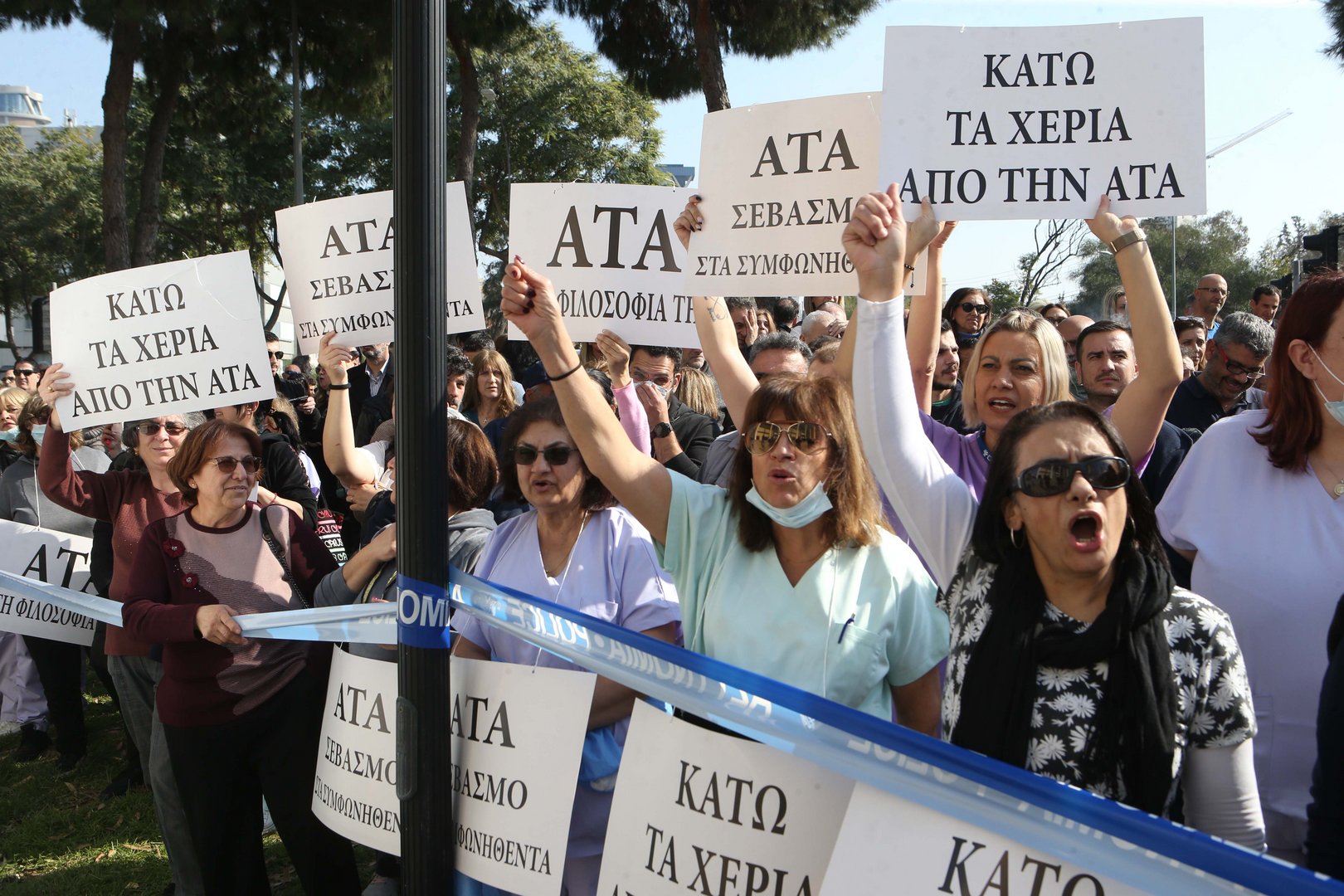President Nikos Christodoulides on Wednesday evening made an appeal to both trade unions and employers, urging them to exercise patience in the face of ongoing differences in the context of the cost-of-living allowance (CoLA) dispute.
“We should wait and see if the ongoing dialogue will yield results and then, if there is an impasse, measures should be taken”, Christodoulides said.
On Monday unions had called a general strike after failed talks for the full implementation of CoLA.
“The right to strike is absolutely respected, as well as any decision taken. Beyond that, however, when a dialogue is underway that has not reached an impasse, my humble opinion is that a strike does not contribute anything to the basic goal of reaching an agreement”, the President said.
He added that both parties should wait for the outcome of the ongoing talks, adding that if no agreement could be reached, each side had the right to decide on the measures it will take.
Labour Minister Yiannis Panayiotou earlier on Wednesday assured his support in bridging the differences between unions and employers, saying an agreement was “feasible”.
Panayiotou pointed out that the general strike called by the trade unions for September 11 was outside the industrial relations code – agreed on by the social partners in 1977 –since the labour ministry had not declared a deadlock.
He added that he would be saying more on the matter next week and stressed the need for both sides to show a positive spirit.
At a meeting in Nicosia, the unions decided on a three-hour work stoppage from 11am until 2pm on September 11, as a warning for harsher measures if their demands are not met.
The strike is expected to paralyse the economy, with action across both the private and public sector.
Speaking after Wednesday’s cabinet meeting, Panayiotou said the government’s policy on employment was human-oriented and had a positive impact on the labour market, the growth of the economy and social cohesion.
The aims for full employment, the renewal of large collective agreements, the upgrading of professional skills and securing satisfactory staffing have all been met, he added.
Furthermore, conditions for the fair distribution of growth, enhancing income adequacy and the improvement of welfare through better terms and conditions of employment have also been created, the minister said.
At the same time, the core of the Cypriot economy is being strengthened and the middle class is being reconstituted, Panayiotou added.
“Government planning for the continuation of the positive course of the labour market to the mutual benefit of the partners in the productive process includes utilising CoLA for the protection of the purchasing power of salaries from the increase of the cost of living, through the payment of the cost-of-living allowance,” the minister said.
He added that the 2023 transitory agreement on CoLA until a permanent and comprehensive agreement was reached in 2025 with the cooperation of the social partners fell within this framework.
Despite the difficulties and challenges faced during the mediation process, “we remain dedicated to the social dialogue, since the management of labour relations through the tripartite social cooperation between workers, employers and the state is a conscious government choice.”
Over the next days, meetings have been scheduled with the workers and employers and reaching a final agreement is “feasible, as long as the necessary constructive contribution is shown by both sides”, he said. A joint meeting will be held if deemed necessary, he added.
Commenting on criticism that the government was taking the side of the employers, Panayiotou said he did not wish to answer because his ministry was dedicated to finding a solution.
“I consider such reports to be understandable on the one hand, but on the other hand they do not reflect the reality for the reason that the government is operating to serve public interest without identifying with one side or the other,” he explained.







Click here to change your cookie preferences